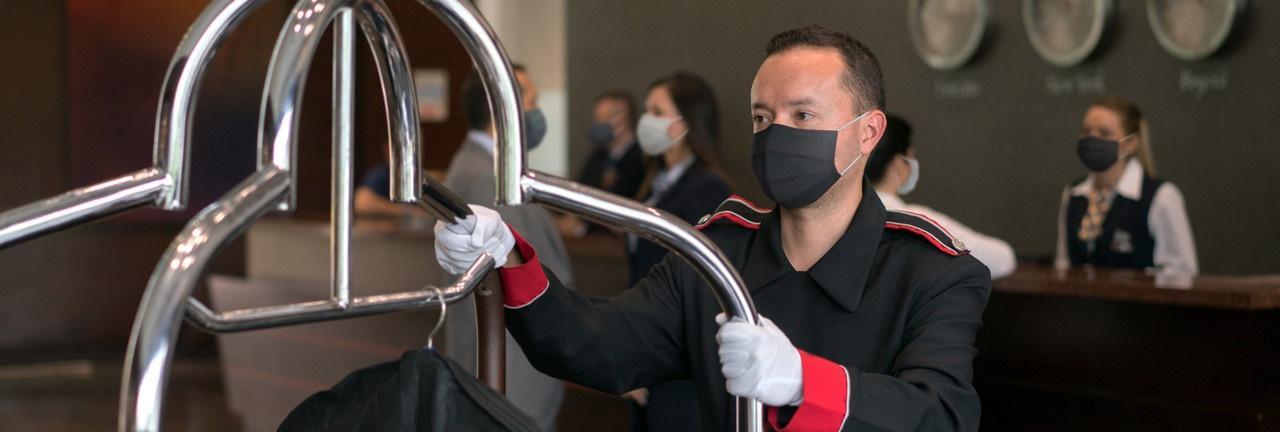Why data is becoming the lifeblood of the Hospitality & Leisure sector
There's no doubt that the past two years have challenged the Hospitality & Leisure sectors in ways that would previously have been unimaginable, with social distancing requirements limiting the number of guests who can be hosted and making familiar processes like checking in and out significantly more complex. But, like every sector impacted by the pandemic, these challenges have inspired a new wave on innovation, as IT infrastructure has evolved to support staff and guests alike, ensuring safety does not have to come at the expense of an enjoyable stay.
Let's consider some of the ways the challenges of COVID-19 have impacted the Hospitality & Leisure sector, and how the lessons learned can - in the long term - open up new opportunities to deliver truly unforgettable experiences for every guest…
Creating fully connected experiences - from booking to departure
The increasing use of apps to make bookings, access rooms and leisure facilities, and eventually check out may have started off as a matter of necessity, but almost two years on, it is starting to show its full potential. Once they have made their initial booking online, guests can receive all the information they need automatically, from practicalities like unlocking their room to recommendations for local attractions, and the ability to order meals based on their specific dietary requirements. This joined-up approach can be extended beyond the initial stay, through bespoke offers and recommendations, helping to generate a steady stream of repeat guests.
Offering guests complete peace of mind through robust cyber security
With the rise of regulations like the GDPR and Cloud Act, along high-profile stories about data breaches appearing in the media on an increasingly regular basis, the public are more conscious of how their data is gathered, stored, and utilised than ever before. The increasing use of Cloud storage, supported by leading-edge cyber security, is helping raise standards across the sector in this respect, encouraging guests to make use of the new approach to booking and accessing services, safe in the knowledge that their data will be protected at all times.
Embracing the Internet of Things
In simple terms, the Internet of Things (IoT) refers to the increasing number of physical devices that are interconnected via the internet to offer an optimal level of control and visibility, with real-time analytics offering regular insights into how processes can be improved. This, in turn, is accelerating the evolution of 'smart' hotels, where IoT technology is utilised to provide an unprecedented level of control over every aspect of the building's operations, not only leading to seamless experiences for guests, but helping staff identify new opportunities for cost savings around the consumption of utilities and make more informed decisions around resource planning.
Taken as a whole, these innovations are driving a true data-driven approach across the entire Hospitality & Leisure sector, where guests' data is captured and stored securely at the point of creation, then intelligently utilised to deliver bespoke experiences and offer actionable insights that allow for new process improvements and operational efficiencies.
If you'd like to find out more about acting on the opportunities, do not hesitate to contact us. Our team will be more than happy to explore your goals and requirements in depth and advise accordingly.
When you subscribe to the blog, we will send you an e-mail when there are new updates on the site so you wouldn't miss them.




